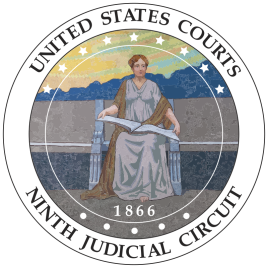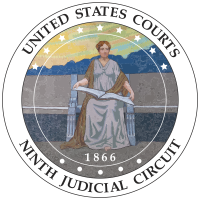Court: DEA Must Reconsider Denial of Petition To Transfer Psilocybin From Schedule I to Schedule II

A federal appeals court has called for the DEA to take a second look at its denial of a petition to transfer psilocybin from Schedule I to Schedule II to allow the substance’s use to treat mental health disorders among patients facing terminal or life-threatening illnesses (Aggarwal v. U.S. Drug Enforcement Administration, No. 22-1718 (9th Cir. Oct. 27, 2023)).
Psilocybin was placed in Schedule I when Congress enacted the Controlled Substances Act (CSA) in 1970. However, according to advocates for therapeutic use of the drug, the synthetic form of the substance has been shown in clinical trials to reduce symptoms of anxiety and depression in patients with life-threatening illnesses without clinically significant adverse effects.
The FDA designated psilocybin in 2018 as a breakthrough therapy for treatment-resistant depression and in 2019 as a breakthrough therapy for major depressive disorder. The agency had found that (1) the drug could treat a serious or life-threatening condition and (2) preliminary clinical evidence indicated that the drug may demonstrate substantial improvement on at least one clinically significant endpoint over available therapies. The designations were intended to expedite the development and review of the drug for those indications.
However, through its classification as a Schedule I controlled substance, psilocybin is designated as having no currently accepted medical use.
Seeking DEA Instructions
In January 2021, Dr. Sunil Aggarwal, the co-founder and co-director of a Seattle-based oncology clinic, sought instructions from the DEA on how to obtain permission to provide psilocybin to his terminally ill patients under the federal Right To Try Act, 21 U.S.C. §360bbb-0a, and under state right-to-try statutes, which allow certain investigational drugs to be used with terminally ill patients.
The following month, the DEA told Aggarwal that it had “no authority to waive” the CSA’s requirements to accommodate right-to-try statutes.
Aggarwal’s clinic petitioned the U.S. Court of Appeals for the Ninth Circuit to review the agency’s response. Two institutes filed an amicus brief in support of the clinic, arguing that the DEA was undercutting the goals of the Right To Try Act and parallel state statutes.
The agency reiterated to the appeals court that it had no authority under the federal Right To Try Act to waive the CSA’s requirements and that the statute’s placement of psilocybin in Schedule I made the substance unavailable outside of research. The DEA also told the court that if the clinic believed that psilocybin “should be moved to another schedule so that doctors may prescribe it as a therapeutic treatment, they are free to … petition the agency for a rescheduling.”
The Ninth Circuit did not reach the merits of the challenge to the DEA’s position, concluding that the agency’s response to Aggarwal did not constitute final agency action that could be reviewed by the court (Advanced Integrative Medical Science Institute, P.L.L.C. v. Garland, 24 F.4th 1249 (9th Cir. 2022)).
Petition Filed With DEA
In February 2022, Aggarwal submitted a petition to the DEA, asking the agency to initiate a rulemaking to transfer psilocybin from Schedule I to Schedule II. In his petition, Aggarwal argued that:
- a drug that has advanced sufficiently far in the development process can be deemed to have a currently accepted medical use with severe restrictions, thereby qualifying the drug for Schedule II under 21 U.S.C. §812(a)(2)(B);
- psilocybin was in the latter stages of the investigational or developmental process and had achieved expanded access or compassionate use status based on clinical results;
- psilocybin qualified as an “eligible investigational drug” under the federal Right To Try Law and state right-to-try statutes;
- the FDA had granted psilocybin breakthrough status; and
- extensive research demonstrated that psilocybin has a low potential for abuse compared to other drugs in Schedule I and Schedule II.
DEA Response to Petition
In a Sept. 23, 2022, response, the DEA told Aggarwal that under 21 U.S.C. §812(b)(2)(B) “a prerequisite to transferring a substance from Schedule I to Schedule II under the CSA is for the [FDA] to determine that a substance has a currently accepted medical use in treatment in the United States.”
“To date,” the agency told Aggarwal in its four-sentence response, “the FDA has not articulated any accepted medical use for psilocybin in treatment. Accordingly, the CSA requires that psilocybin remain in Schedule I.”
Aggarwal again turned to the Ninth Circuit, challenging what he called “DEA’s evasive, perfunctory and reflexive denial of the petition it invited Dr. Aggarwal to submit.”
Ninth Circuit Analysis
The appeals court noted in an unpublished Oct. 27 memorandum opinion that it must “hold unlawful and set aside agency action, findings, and conclusions found to be … arbitrary, capricious, an abuse of discretion, or otherwise not in accordance with law” (5 U.S.C. §706(2)(A)).
“In denying Aggarwal’s petition,” the Ninth Circuit panel said, “the DEA failed to provide a minimal level of analysis sufficient to allow its path to be reasonably discerned. It also failed to clearly indicate that it has considered the potential problem identified in the petition.”
Specifically, the court said, the DEA’s denial letter failed to define “currently accepted medical use with severe restrictions” — “the standard applicable to transferring a drug from Schedule I to Schedule II on which Aggarwal relied.”
Five-Part Test
The appellate court also noted that the DEA’s denial letter had not expressly stated that a substance could not meet the “currently acceptable medical use” standard unless it met a five-part test that the agency had established in its 2016 denial of a petition seeking to reschedule marijuana (Denial of Petition to Initiate Proceedings To Reschedule Marijuana, 81 Fed. Reg. 53767 (Aug. 12, 2016)).
The five-part test had called for determinations that:
- the drug’s chemistry is known and reproducible;
- there are adequate safety studies;
- there are adequate and well-controlled studies showing efficacy;
- the drug is accepted by qualified experts; and
- the scientific evidence is widely available.
The court said that it was not deciding whether the five-part test for “currently acceptable use” was a lawful interpretation of 21 U.S.C. §812(b)(2)(B)).
“Even if we inferred that the DEA does require a substance to meet the five-part test for ‘currently accepted medical use’ in order to be transferred to Schedule II,” the Ninth Circuit panel continued, “the DEA failed to explain why Aggarwal’s submission did not show that psilocybin met the five-part test. Nor did the DEA’s letter explain its reasoning for any such conclusion.”
The DEA had discussed some of these issues on appeal, the court noted. However, it said, “post hoc explanations of agency actions by appellate counsel cannot substitute for the agency’s own articulation of the basis for its decision.”
Interpreting the Statute
In a footnote, the Ninth Circuit also said that “the denial letter’s statement that ‘a prerequisite to transferring a substance from Schedule I to Schedule II under the CSA is for the [FDA] to determine that a substance has a currently accepted medical use in treatment in the United States’ is contrary to 21 U.S.C. §812(b)(2)(B).”
Section 812(b)(2)(B), the appeals court noted, “sets as a prerequisite to transfer to Schedule II either ‘a currently accepted medical use in treatment in the United States’ or ‘a currently accepted medical use with severe restrictions.’”
On this basis, the appellate panel remanded the case to the DEA “to either clarify its pathway for denying Aggarwal’s petition or reevaluate Aggarwal’s petition on an open record.”



